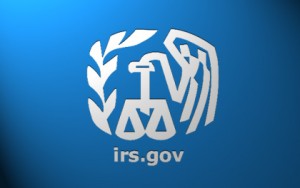Bitcoin and the IRS
 Last month the GAO, Government Accountability Office, produced a report on ‘Virtual Currencies’ and tax compliance. The report urges the IRS to look into the use of virtual currencies and release guidelines on taxation of income earned via these currencies.
Last month the GAO, Government Accountability Office, produced a report on ‘Virtual Currencies’ and tax compliance. The report urges the IRS to look into the use of virtual currencies and release guidelines on taxation of income earned via these currencies.
The report correctly notes that virtual currency transactions are similar to cash or barter transactions. There are no third parties involved whose responsibility it is to report the transaction and transactions of this sort making “underreporting, mischaracterization, and evasion” much easier.
This does signal that the IRS will be keeping a closer eye on the Bitcoin economy, but there is nothing terribly surprising here; the IRS wants a share of your income…however you earn it.

